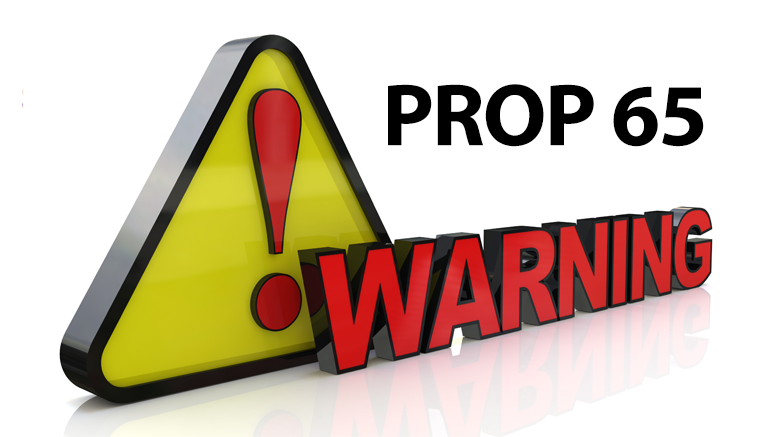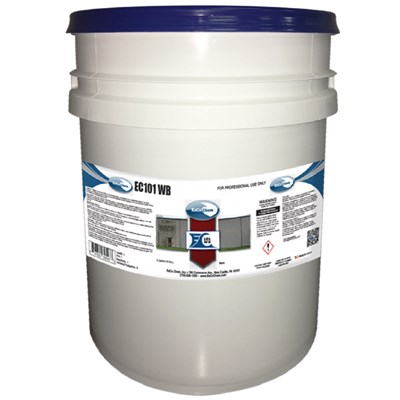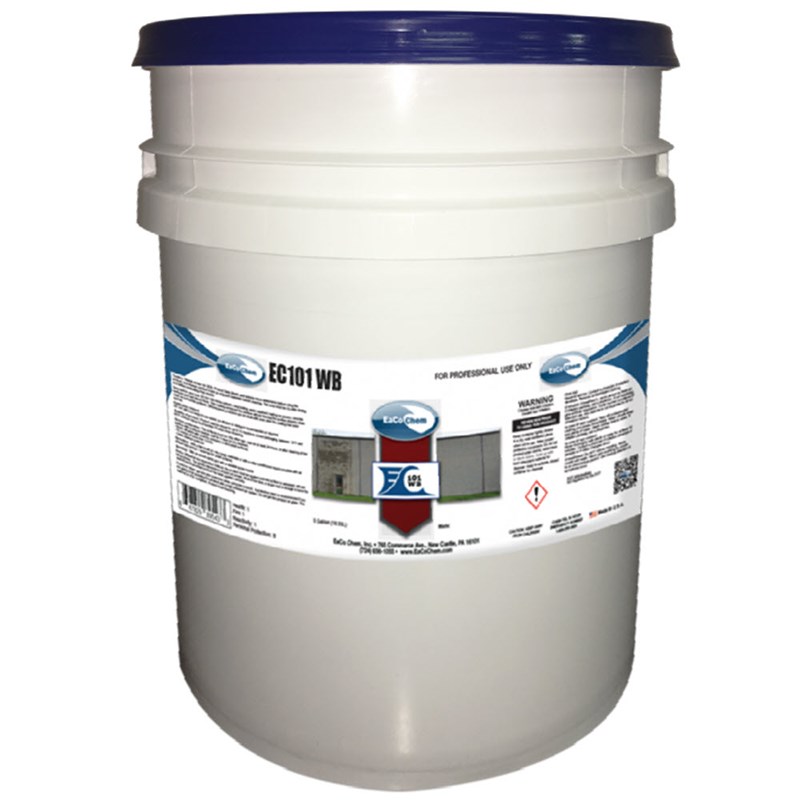Sealer EC 101 WB for Masonry 5 gallon
Quick Overview
- Water Based Product does not Cloud during Drying
- Easy to apply, no mixing, use low pressure sprayer
- Easy Recoating for Touchups
- Works on old and new surfaces, long lasting
- Coverage 150 sqft per gallon
Show More
Sealer EC 101 WB for Masonry, Concrete and Pavers

Sealers can slightly darken the color.
This is a natural look sealer water based sealer and the before and after color difference

Sealing a Concrete Table Top
This is an after sealing photo of a concrete patio table sealed with EC 101 WB There are many concrete or similar style surfaces that can be sealed with EC 101 WB a quality masonry and concrete sealer
EC 101 WB forms a uniform, long lasting, water repellent coating on pavers, concrete surfaces, brick and split faced block.
The coating enhances the surface without leaving the surface slippery.
Efflorescence problems can be removed even after the coating has been applied.
Advantages
- Water based product
- Does not cloud during the drying process if moisture is present
- Bonds with the substrate for excellent adhesion
- Allows efflorescence to pass through sealer for easy future cleanup
- Durable and resistant to traffic and wear
- Easy to touchup with a simple recoat
- Not affected by most cleaners
- Long term water repellency
- Works on old and new surfaces
- Stabilizes joint sand on Paver applications
- Coverage is 150 sq ft per gallon (Plus or Minus for porosity and texture)
After rain, wait for at least 24 hours
After Pressure Washing wait for 3 days (Apply in dry weather).
Brush off parts with crumbly, powdery or encrusted surfaces.
Clean stained surfaces.
Spreading: With a flat brush on very rough materials or a roller should only be used on small surface areas.
Spraying: With an airless spray gun with a variable spray nozzle.
EC 101 WB forms uniform, long lasting, water repellent coating on pavers, concrete surfaces, brick and split faced block. This coating enhances the surface without leaving the surface slippery when used on horizontal surfaces. Efflorescence problems can be dealt with even after the coating has been applied. EC 101 WB protects from water, normal wear, and some food and oil stains.



Proposition 65 requires businesses to provide warnings to Californians about significant exposures to chemicals that cause cancer, birth defects or other reproductive harm. These chemicals can be in the products that Californians purchase, in their homes or workplaces, or that are released into the environment. By requiring that this information be provided, Proposition 65 enables Californians to make informed decisions about their exposures to these chemicals. Proposition 65 also prohibits California businesses from knowingly discharging significant amounts of listed chemicals into sources of drinking water. Proposition 65 requires California to publish a list of chemicals known to cause cancer, birth defects or other reproductive harm. This list, which must be updated at least once a year, has grown to include approximately 900 chemicals since it was first published in 1987. Proposition 65 became law in November 1986, when California voters approved it by a 63-37 percent margin. The official name of Proposition 65 is the Safe Drinking Water and Toxic Enforcement Act of 1986.
The list of chemicals contains a wide range of naturally occurring and synthetic chemicals that include additives or ingredients in pesticides, common household products, food, drugs, dyes, or solvents. Listed chemicals may also be used in manufacturing and construction, or they may be byproducts of chemical processes, such as motor vehicle exhaust. For more information visit www.p65warnings.ca.gov/





